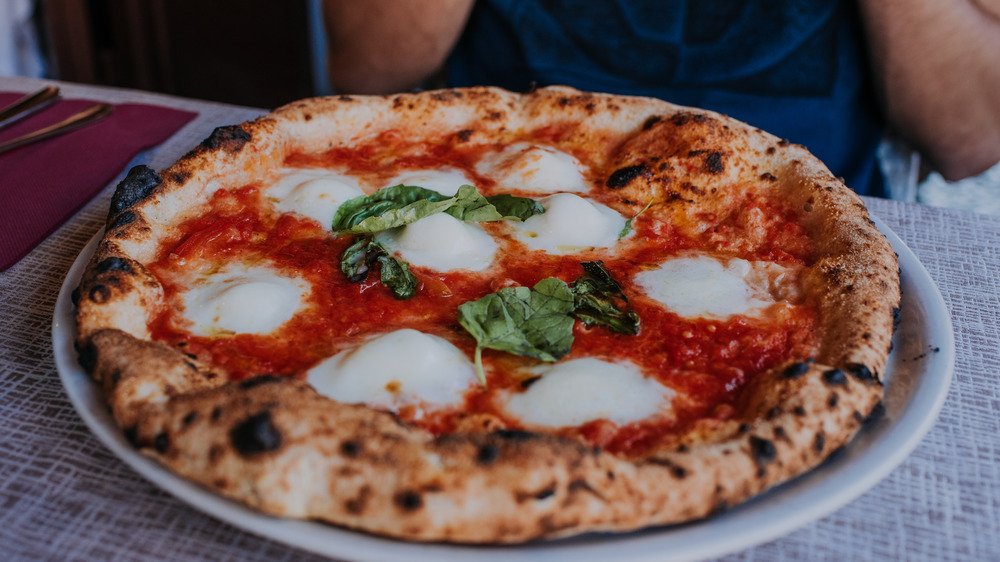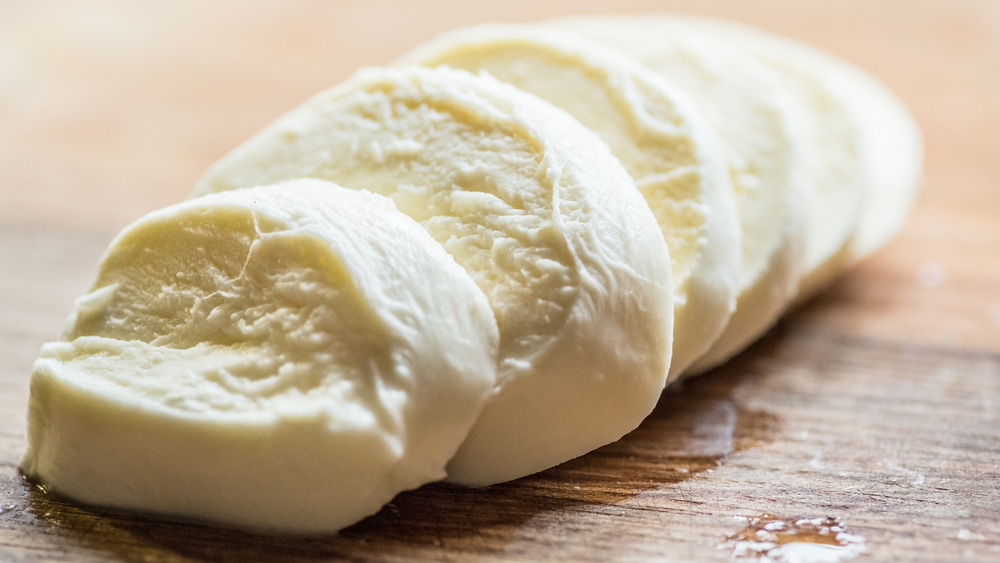Read This Before Ordering Anything With Mozzarella Di Bufala
Whether it's melted over a margherita pizza, oozing out of a caprese sandwich, or tossed in an insalata, mozzarella is a staple in Italian cooking. And while regular mozzarella is delicious, true cheese lovers know that buffalo mozzarella (also known as mozzarella di bufala in Italian) is even tastier. Made out of the milk of water buffalo, it's creamier, richer, and more flavorful than regular mozzarella, with nearly double the fat content.
It's also a lot pricier, given that it's more difficult to source and produce. Not only does Serious Eats describe it as a novelty that's "expensive but worth it," but The New York Times has even dubbed buffalo mozzarella "one of the most elusive cheeses on earth." So when you see it on a menu at an Italian restaurant, you're probably tempted to order it. And rightfully so — after all, where else will you get to taste the tangy deliciousness? However, according to some sources, you might want to think twice before paying extra for buffalo mozzarella when you're out to eat.
You could be paying for counterfeit mozzarella cheese
Unfortunately, you can't believe everything you see on a restaurant menu. Just because the menu says you're getting buffalo mozzarella doesn't mean you're actually getting the coveted Italian cheese. Back in 2010, the Italian government sampled cheese across the country and found that 25 percent of the "buffalo" mozzarella was actually being watered down with cow's milk, with many containing up to 30 percent cow's milk. While the counterfeit cheese was determined as safe to eat, people were still shocked — and rightfully upset — that what they thought they were eating and paying for was actually not much better than the regular mozzarella you'd find at the grocery store.
And that wasn't the only time that people were scammed out of real buffalo mozzarella. The scandal continued in 2019 when Food Manufacture tested dishes in British restaurants that claimed to be made with the elusive cheese and found that two thirds of them actually contained cheese made with cow's milk. So the next time you're looking to pay extra for this beloved type of cheese, it might be worth reconsidering when you're dining out.

